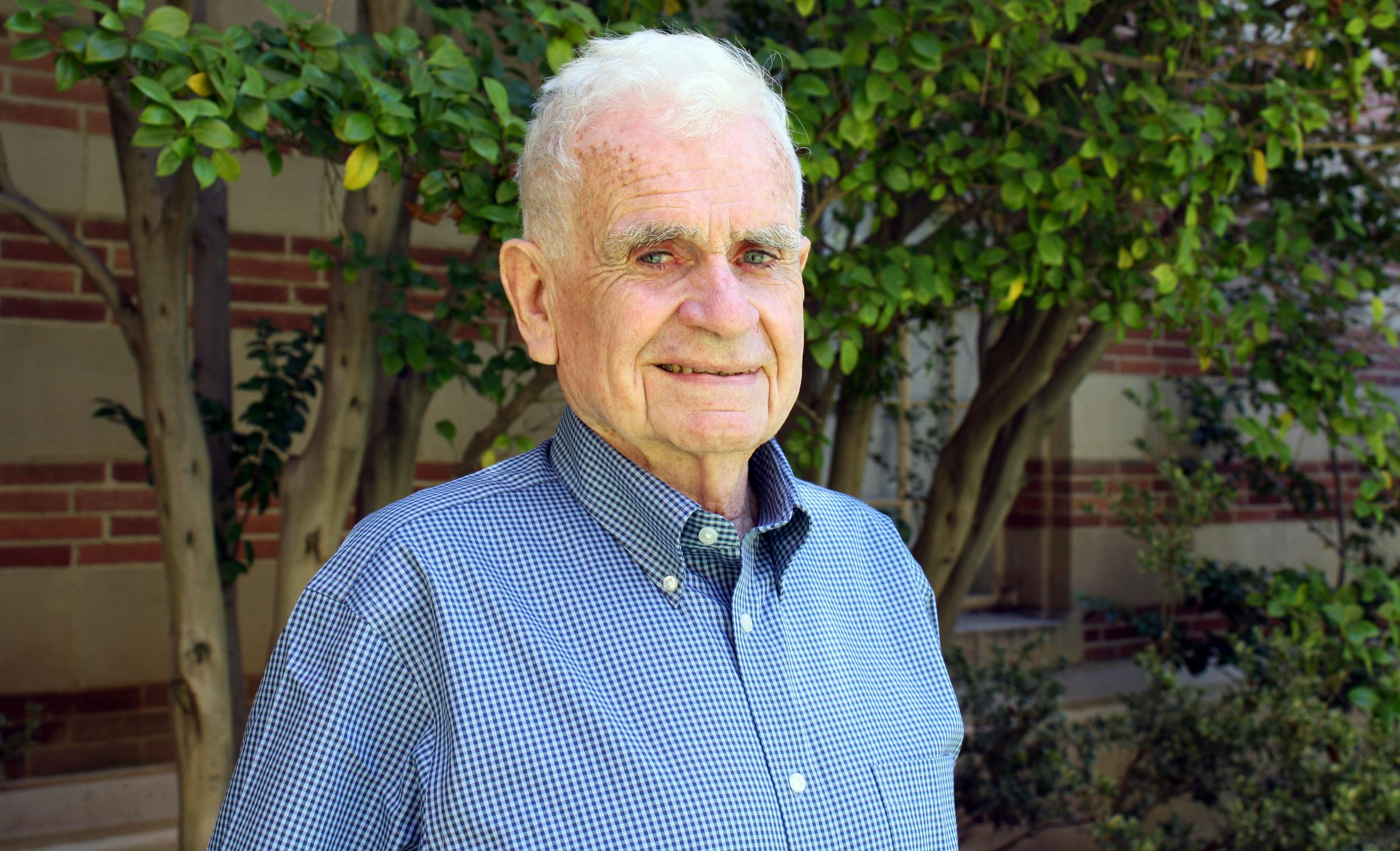While teaching a UCLA Fiat Lux course this spring on “Issues in Transformation of Schooling,” Emeritus Professor of Education John McNeil found that his undergraduate students had some surprising ideas about how to improve education, mostly centered upon obtaining greater equality in schooling
“One of my students contrasted institutionally imposed competition vs. competing with one’s self,” says McNeil. “Another student described how English language learners need to have more opportunities to experience – and better learn – English by collaborating with English speaking peers in inquiry and civic projects, and several voiced concern about unfairness of such school district employment policies as “last hired, first fired.”
It is this type of holistic thinking about education that has enabled Professor McNeil’s “Contemporary Curriculum” (8 Edition. Hoboken: Wiley, 2014) to remain a highly relevant text on philosophies of curriculum since the book’s original publication in 1970. Focusing on the development of curriculum from systematized, academic, humanistic, and re-constructionist perspectives, McNeil tackles some of the most pressing questions about education today in his book, which so far has been translated into Arabic and Chinese.
An expert on instruction, literacy, program development and evaluation in US and developing countries undergoing educational transformation, Professor McNeil has observed an evolution of curriculum.
“More humanistic and social reconstruction approaches to education existed in the 1970s,” he says. “School Innovation and questioning authority was an effect of changes in society at the time. In 1990, the federal government through NCLB legislation systematized schooling by requiring that schools be judged by student performance on standardized tests that matched state standards. This made teaching to the test the focus. Scripted lessons, coaches, and mandated textbooks, narrowed the curriculum, replacing the practice of teachers developing curriculum for their own classroom guided by broad educational frameworks as they tried to make learning relevant to student and community.”
Today with the State Common Core Standards setting higher academic expectations for students and promising opportunity for teachers to make content both engaging to students and society, McNeil says that education may see a return to classroom teachers as curriculum makers. However, he notes, “In an era of growing privatization of education, schools are still divided by a sorting system that may curtail social class mobility.”
“In the recent past, schools sorted by tracking, assigning students to programs and classes by test results that too often reflected background, not ability,” says Professor McNeil. “Although there are dedicated teachers and leaders in poverty areas today who excel in teaching and engage their communities in offering exemplary programs, generally schools serving the poor confront unequal challenges. Only now are advanced placement courses becoming available to secondary schools located in postal zones signifying poverty.
“Too often students in high-poverty areas have been offered basic knowledge and directed learning aimed at getting them to conform to social norms,” he says. “With less promise from what their schools offer, many drop out. Schools serving the middle class offer brighter futures with most students optimistic about their school activities and courses, believing the school is preparing them for college or careers. Most middle class students are excited about learning, and are happy in their schools. Children in affluent schools experience individualization with opportunity to follow their dreams. If one wants to be a film-maker, writer, scientist, dancer, fashion designer or other, these schools will tailor the education experience for them, with enrichment like travel and study opportunities. Elite schools on the other hand, prepare their students to be leaders. Through influential peer grouping and interacting with intellectual and political movers and shakers, they see how knowledge is won and how the world works, preparing their students to rule and control.”
Professor McNeil cites UCLA Lab School , formerly known as University Elementary School (UES), as an elite and progressive school that has the potential to prepare leaders. Los Angeles Mayor Eric Garcetti, actor Leonardo DiCaprio, and former Harvard president Derek Bok, are among its notable and accomplished alumni.
“Indeed, by collaborating with UCLA professors from multiple disciplines in research and curriculum development, UCLA Lab School has long been a progressive school, with learning-by-doing, enacting real life situations requiring problem solving, and the application of critical subject matter,” says McNeil. “As one example, in years past, UES primary students made miniature boats and relief maps in their study of the Los Angeles Harbor, demonstrating commerce and trade and explaining the economy of the region. A United Nations enactment, an ethnomusical performance, and an archeological dig are also illustrative. Today the school continues to lead in crosscutting innovation and in keeping with UCLA’s mission, placing equity and diversity high on its agenda, its students representing a broad range of social and economic demographics.”
McNeil also cites UCLA’s Center X, which is housed in the Graduate School of Education & Information Studies, as “committed to equitable schooling by offering outreaching experiences in pre- and continuing education, enabling UCLA to be in the forefront of school transformation locally, nationally and globally.”
Professor McNeil earned his B.A. and M.A. in English at San Diego State University, and his Doctorate of Education from Teachers College at Columbia University. An expert on the transformation of education in Latin America and Jamaica, he holds honorary degrees from the Escuela Normal in Iguala Mexico, Universidad de Monterrey, and East China Normal University. He is the author of “Curriculum: The Teacher’s Initiative” (3 Edition, Saddle River, NJ: Pearson, 2003), which has been translated into Korean and Chinese. Professor McNeil is a World War II veteran, and served aboard the USS Achernar at the Battles of Normandy, Southern France, and Okinawa.
